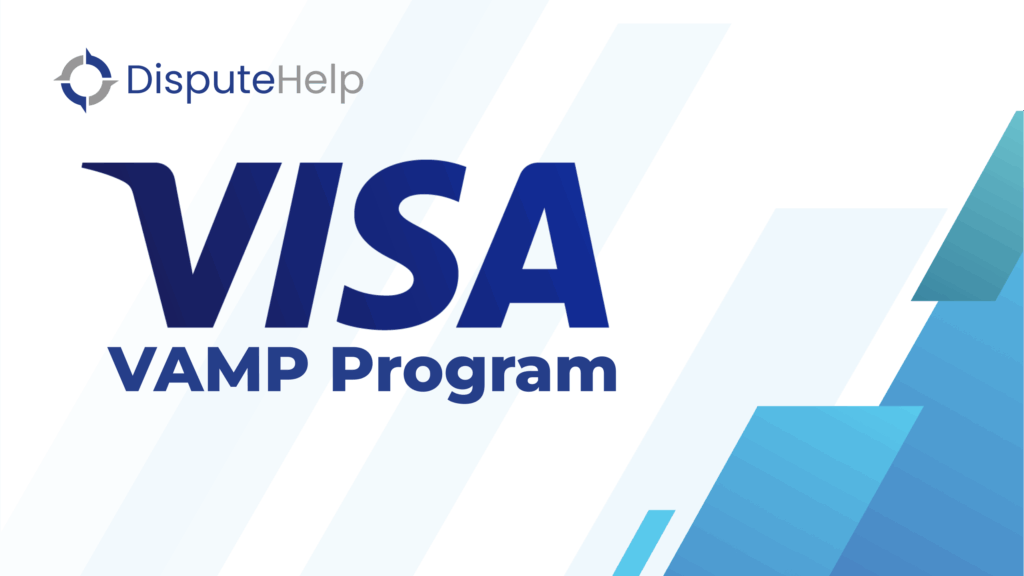The Shift from Reactive to Rule-Based Resolution
Traditionally, dispute handling has been reactive. A cardholder questions a transaction, the issuer initiates a dispute, and merchants are forced into a time-consuming cycle of evidence submission and representment. But Visa RDR turns that model on its head. It lets merchants, or the MSP on their behalf, pre-define refund rules that automatically resolve certain types of disputes the moment they’re initiated.
This isn’t just about speed. It’s about control.
With RDR, MSPs can define exactly which types of disputes should be refunded automatically. For example, low-value digital goods or recurring billing disputes that are rarely won. The result? A dramatic reduction in both manual work and unresolved dispute volume.
How Visa RDR Works Across Portfolios
Visa RDR activates the moment a dispute is filed. Rather than routing it through traditional dispute channels, the network checks the merchant’s predefined rules. If the dispute matches those parameters, let’s say a transaction under $25 from a known recurring subscriber, the system processes a refund immediately. No back-and-forth. No paperwork.
For MSPs managing hundreds or even thousands of merchants, this real-time automation is invaluable. Visa RDR can be deployed portfolio-wide via a single integration with DisputeHelp, ensuring consistent execution of refund policies across every account.
More importantly, these refunds occur before the chargeback is logged. Meaning they are resolved at the dispute stage, not the chargeback stage. This positioning affects downstream data reporting, fraud monitoring, and risk assessments.
Operational Benefits for MSPs
Visa RDR offers three direct benefits to MSP operations:
- Reduced workload for in-house teams – By eliminating the need to manually assess disputes that would otherwise be lost or refunded anyway.
- Improved processing times – Refunds are issued instantly, minimizing merchant frustration and reducing friction with cardholders.
- Scalable policy control – MSPs can manage and adjust refund rules across their entire merchant base through a unified configuration.
It’s also worth noting that automated refund systems like RDR can complement other proactive strategies already in place. When used alongside solutions like Ethoca Alerts or Verifi CDRN, MSPs gain both pre-chargeback warnings and instant resolution pathways.
Risk and Compliance Implications
Visa’s VAMP program applies strict thresholds to dispute ratios, and exceeding them can trigger monitoring or even penalties. RDR offers a new way to help MSPs keep portfolios in compliance. Since May 2025, disputes resolved through Visa RDR are excluded from VAMP calculations.
That change is huge.
It means that, by resolving eligible disputes automatically through RDR, MSPs can effectively reduce the volume of counted chargebacks in their portfolios. This aligns merchant operations with Visa’s enforcement expectations and minimizes the likelihood of portfolio-wide remediation triggers.
For portfolios with high exposure to subscription billing, digital goods, or cross-border payments, RDR may be the difference between staying under thresholds or being flagged.
Merchant Expectations and Portfolio Differentiation
The days of offering chargeback prevention as a “nice-to-have” are over. Merchants increasingly expect their service providers to offer proactive, automated solutions—especially those that reduce labor and increase cash flow predictability.
When MSPs deliver Visa RDR as part of a broader dispute management solution, they provide a clear value proposition: less hassle, fewer losses, and no time wasted on disputes they were never going to win. SaaS, travel, and subscription-based merchants now view that kind of operational efficiency as a key factor when choosing service providers.
Offering Rapid Dispute Resolution through a white-labeled platform like DisputeHelp also reinforces MSP value. Instead of sending merchants to third-party tools, providers can embed this functionality directly into their service stack, reducing churn and building trust.
Where Visa RDR Fits in a Full Dispute Strategy
Let’s be clear: Visa RDR is not a silver bullet. It works best when paired with other upstream and downstream tactics. For instance:
- Visa RDR resolves disputes immediately when rules match
- Verifi Order Insight and Ethoca Consumer Clarity push key transaction data to issuers to prevent disputes from being filed in the first place
- Ethoca Alerts and Verifi CDRN notify merchants after the dispute is filed, but before a chargeback occurs
- The chargeback representment process aims to recover revenue after a chargeback has already posted
MSPs that offer a layered strategy built on DisputeHelp’s integrated solutions can optimize outcomes at every stage of the dispute timeline. And because all tools operate from a shared data layer, there’s no risk of overlap or confusion.
Team up with DisputeHelp to implement Visa RDR
If you’re managing a diverse merchant portfolio and looking for ways to automate refunds, reduce network scrutiny, and offer high-performance features to merchants, Visa RDR deserves your attention. DisputeHelp’s white-label platform makes RDR deployment seamless. From rule configuration to ongoing optimization, we provide full support every step of the way.
Why DisputeHelp?
DisputeHelp brings every Visa and Mastercard dispute management solution under one roof. With advanced automation, white-label capabilities, and real-time reporting, our solutions keep your portfolio compliant, efficient, and competitive. We’re built for scale, with decades of expertise helping MSPs control chargeback risk and maximize revenue recovery across every merchant account. Reach out to our team to see how we can help.
FAQs: Visa RDR Implementation for MSPs
What is Visa RDR and how does it work?
Visa RDR enables automated dispute resolution by using pre-configured rules to refund cardholders before a chargeback posts. When a dispute is initiated by the cardholder’s bank, the system checks the merchant’s preset conditions such as transaction amount, purchase type, or merchant category. If the dispute matches those rules, a refund is automatically issued before a chargeback is ever filed. This prevents the dispute from progressing and reduces the operational overhead of manual case review. For MSPs, this creates massive operational efficiency. DisputeHelp makes it easy to implement RDR across your merchant portfolio.
Does Visa RDR replace chargeback alerts or representment?
No. It complements them. RDR resolves certain disputes automatically, but alerts and representment are still critical for other dispute types. DisputeHelp integrates them all into one solution.
How does Visa RDR affect VAMP calculations?
As of May 2025, disputes resolved via RDR are excluded from VAMP ratios. This can significantly lower the risk of hitting enforcement thresholds. Our platform ensures these exclusions are properly recorded and our VAMP calculator can help you quickly determine your ratio.
How does Visa RDR integrate with other chargeback prevention tools?
Visa RDR works best as part of a layered dispute strategy. It handles resolution at the earliest stage—right when a dispute is initiated—while tools like Verifi Order Insight and Ethoca Consumer Clarity focus on prevention, and Verifi CDRN or Ethoca Alerts provide real-time notifications for manual intervention. DisputeHelp integrates all of these solutions into a single platform, allowing MSPs to manage upstream prevention, midstream resolution, and downstream representment from one place. This unified structure improves efficiency, visibility, and compliance across your entire merchant portfolio.
What types of disputes are best suited for RDR?
Disputes involving low-dollar transactions, digital goods, recurring subscription charges, or situations where win rates are historically low tend to be ideal for Visa RDR. These cases benefit from the speed and simplicity of automated refunds. DisputeHelp can help you identify the right dispute categories and configure rule sets that align with your portfolio’s risk profile.
What ongoing support does DisputeHelp provide for RDR?
From initial onboarding to ongoing rule tuning and analytics, our team supports MSPs at every stage. You’ll have access to dispute experts and robust reporting tools. Contact our team today to get started.



